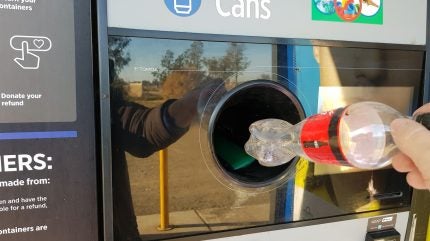
The UK government’s much-anticipated deposit return scheme (DRS) for plastic bottles and cans has been pushed back yet again, with a new target launch date of October 2027.
This latest delay, the third in as many years, has sparked renewed debate about the government’s commitment to tackling plastic pollution and the challenges of implementing a nationwide recycling initiative.
Environmental concerns mount
Environmental groups have reacted with dismay to the postponement. They argue that the delay represents a missed opportunity to significantly improve plastic recycling rates and reduce litter, particularly considering the UK’s ongoing plastic pollution problem.
A well-designed DRS, where consumers receive a small deposit back for returning used bottles and cans, has proven successful in other countries, boosting recycling rates to over 90% in some cases.
Campaigners estimate that between now and the 2027 rollout, billions of plastic bottles and cans will be improperly disposed of, further exacerbating the environmental burden.
Industry concerns and lobbying
Industry concerns centre on the potential logistical challenges and increased costs associated with implementing the scheme.
Critics argue that the complexity of handling different material types, including glass, could disrupt supply chains and raise operational expenses.
The government has echoed these concerns, citing the need for a streamlined approach to avoid “undue complexity” for businesses.
Devolved administration disagreements add complexity
Adding another layer of complication are disagreements between the UK government and the devolved administrations in Wales and Scotland.
While Scotland initially planned to include glass bottles in its DRS, it ultimately agreed to remove them to comply with the UK Internal Market Act. This act aims to ensure smooth trade within the UK, but critics argue it has hampered efforts to implement a unified DRS across the nation.
Wales, however, remains committed to including glass bottles in its own DRS plans, potentially creating a situation where different rules apply in different parts of the UK. This lack of uniformity could further complicate the rollout process and potentially disadvantage businesses operating across devolved boundaries.
Business implications and the road ahead
UK companies should closely monitor the evolving DRS landscape and its potential impact on their operations. This includes analysing potential cost implications, logistical requirements, and the need to adapt labelling or packaging to comply with the scheme.
Businesses that proactively prepare for its eventual rollout in 2027 will be better positioned to adapt and potentially benefit from increased consumer focus on sustainable practices.



